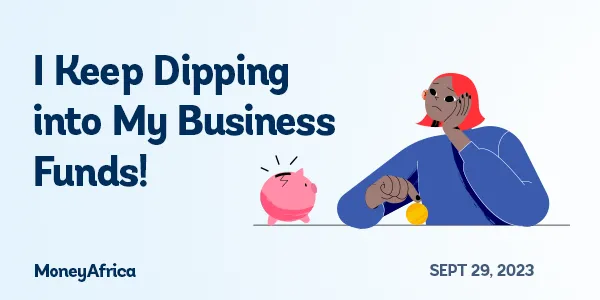Good Morning 😃
How are you doing?
Friday letters are usually dedicated to taking questions from our community. Do you have a question for us? Please feel free to
- send an e-mail to info@themoneyafrica.com; or
- send a DM to any of our social media channels, or
- simply fill out this form. Don’t worry, your responses are kept anonymous.
***
Question
Please I’d like to understand investing and how to create money-multiplying systems. Can you please explain mutual funds and how to invest in them like I’m a 5-year-old?
Answer
Imagine you have a kolo (saving box), and you want to make your money grow. Instead of just keeping your money in the kolo, you want to do something smart with it. That’s where investing comes in. Now, think of a mutual fund as a bigger box let’s call it a chest. Lots of people like you and I put their money into this chest. A group of really smart helpers, called “fund managers,” take care of this chest.
Here’s how it works:
When you invest in a mutual fund, it’s like taking a small part of your kolo savings and putting it into a chest. This chest isn’t just yours; it belongs to lots of people who also want their money to grow. So, you own a little piece of that chest, and that’s your investment in the mutual fund. Now, think of this chest as a food store. Instead of buying whole foodstuffs like a bunch of plantain or a bag of rice, the helpers we spoke about, known as fund managers, buy lots and lots of foodstuffs in small quantities, say a quarter of a bag of rice, or just one piece of plantain. But these foodstuffs are actually little pieces of many different companies. Some foodstuffs might be from a company that makes phones, others from a company in the finance industry, and even some from a company that builds cars. This way, your money isn’t all in one place, which can be safer.
When the companies that make the foodstuffs do well and become more popular, the foodstuffs become more valuable. And guess what? Your little piece of the chest (your investment) becomes more valuable too! So, if you ever decide to take your money out of the chest, you might get back more money than you put in. But, just like foodstuffs can get bad or expire, sometimes the companies don’t do well, and the foodstuffs lose value. That’s why you need to be patient and let your money grow over time.
So, to sum it all up, investing in mutual funds is like sharing your kolo savings with lots of other people to buy pieces of different companies’ foodstuffs. If those foodstuffs become more valuable, your investment grows too, but you need to be patient and let it grow over time. You have to carry out regular checks, and when you have more money to spare, you can add them to your chest for even more potential growth.
***
Question
I have a business and it’s presently my only source of income. I feel sad that I’m making a lot of withdrawals from the business account, but I have to live. I wish I never touched the business funds so I can let it grow.
Answer
Managing the finances of your business while also meeting your personal financial needs is a common challenge for entrepreneurs.
Firstly, it’s completely normal to have to withdraw from your business account to cover personal expenses, especially when your business is your primary source of income. This amount is usually referred to as “director’s drawing.” Many business owners go through this phase, particularly in the early stages. It’s a part of the journey to financial stability. One way to navigate this situation is by establishing a clear separation between your personal and business finances. Consider setting up a dedicated personal budget alongside your business finances. This can help you gain a better understanding of your personal spending habits and allow you to identify areas where you can potentially cut back without compromising your quality of life. By optimising your personal expenses, you may find that you can decrease the frequency and number of withdrawals from your business account.
Additionally, it’s crucial to keep a close eye on your business’s financial health. Regularly review your business expenses and income to ensure you’re making informed decisions. Consider creating a financial plan or forecasting model that outlines your revenue goals and expenses, helping you visualise how your business can grow over time. Another strategy is to explore alternative sources of income or additional revenue streams for your business. Diversifying your income can provide a buffer against the need to withdraw too much from your business account for personal use. This could involve launching new products or services, reaching out to new customer segments, or seeking strategic partnerships that can boost your business’s bottom line.
Consider building an emergency fund for your personal finances. Having a financial cushion can provide peace of mind and reduce the pressure to constantly tap into your business funds. Start small and gradually increase this fund as your business becomes more stable. In the long term, aim to reinvest profits back into your business whenever possible. This can accelerate its growth and make it more resilient in the face of economic challenges. Managing your business’s finances while also maintaining your quality of life is a delicate balancing act, but with careful planning and continuous monitoring, you can work towards letting your business flourish while still meeting your personal needs.
Did you find this newsletter useful? You can read previous newsletters here
***
Would you like to know the state of your finances?
Take this test to see how you are doing financially
***
Do you know that we have our own podcast? It’s MONEYTALKS!💚
Here’s a link to listen to all the amazing episodes we have!
***
Thank you for reading Money Africa’s Blog.
Please feel free to share it.
MoneyAfrica premium plan
Are you a mid to high-income earner? Do you find communities a bit too busy? You should sign up for our premium plan.

You can learn more about that here.
***
We often get questions regarding how to plan your finances to align with your relocation plans, especially for students seeking to further their studies. As always, we have heard you, and we have put together an e-book to help you navigate this. Follow this link, to get your FREE copy of the e-book: The Japa Encyclopedia.
***
Get our annual subscription and learn more about investing safely and building a solid portfolio in 2023.
Don’t forget to:
- Join our community, if you want to smash your 2023 financial goals. It takes at least 30 days to build great habits that will last you a lifetime. So why not start now? There is a lot you can achieve.
- If you would like to document your financial journey in 2023, then our journal would be an excellent fit for you. It costs ₦7,500 (excluding delivery).
- Get a budget sheet to track your monthly expenses. Click here
- Get an investment tracker to be on top of all your investments. Click here
MoneyAfrica is a financial literacy platform. Our goal is to make everyone better with their finances.
We do this by engagements via our:
– social media handles
– platforms for paid community members (for adults and students)
– webinar sessions with corporate clients
Would you like to join any of the communities? Please click here
Would you like us to hold a webinar for your company’s staff? Please send an email to info@themoneyafrica.com


